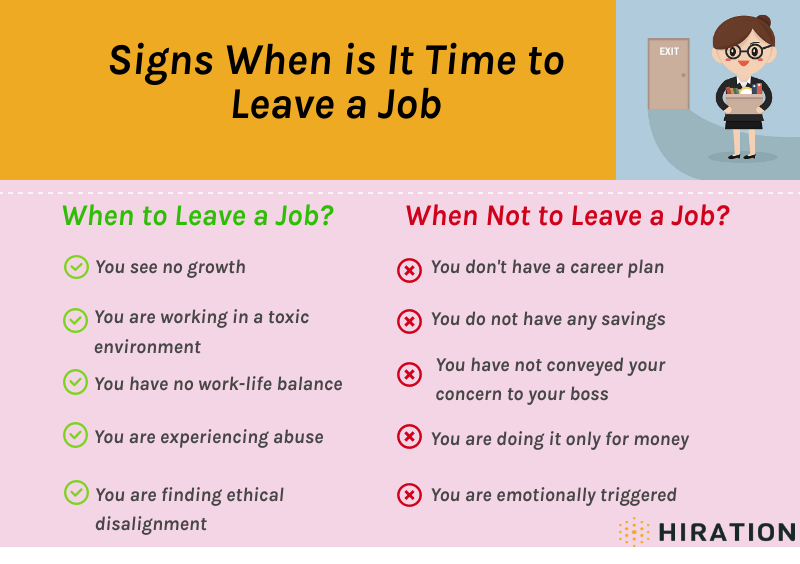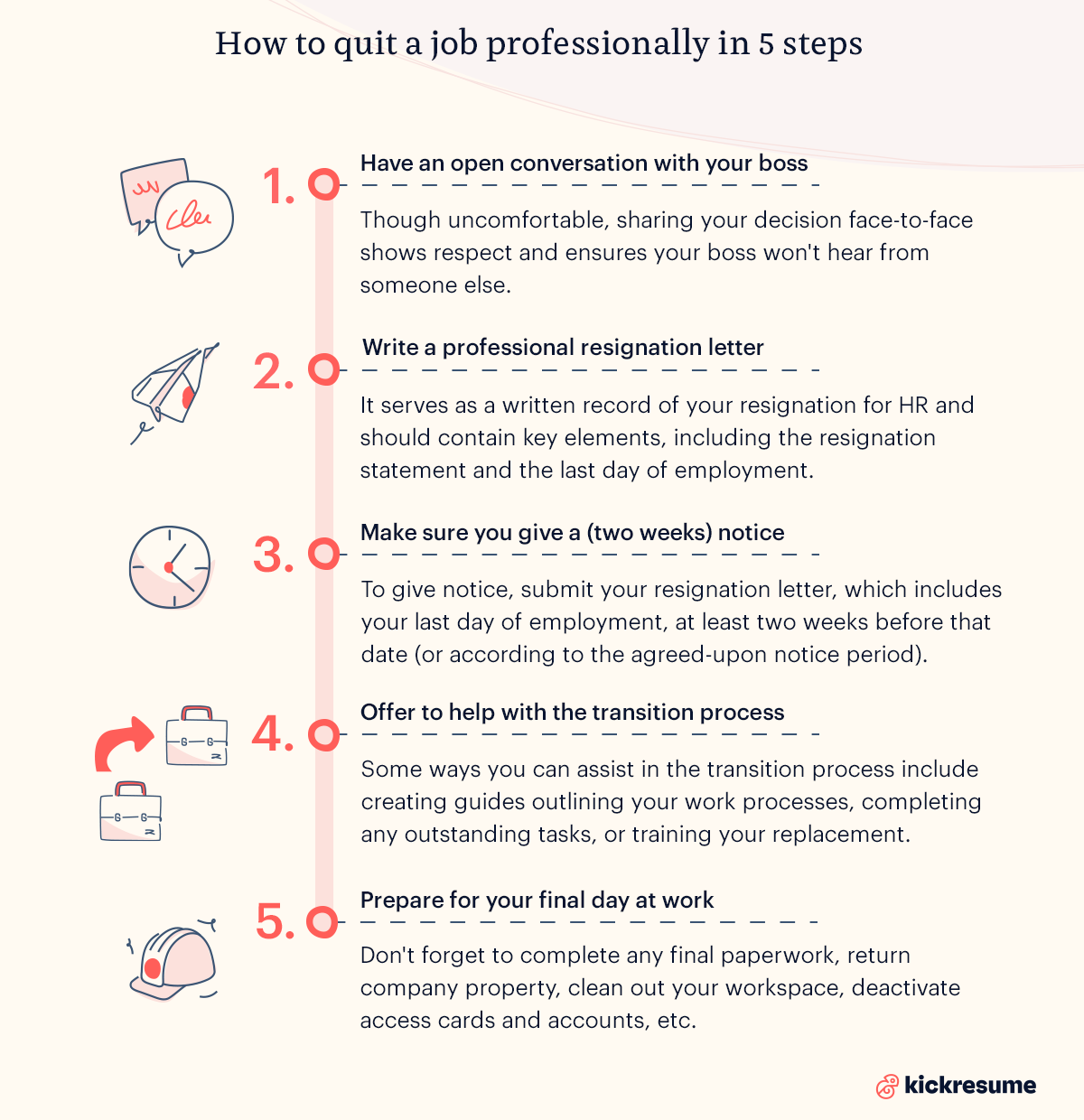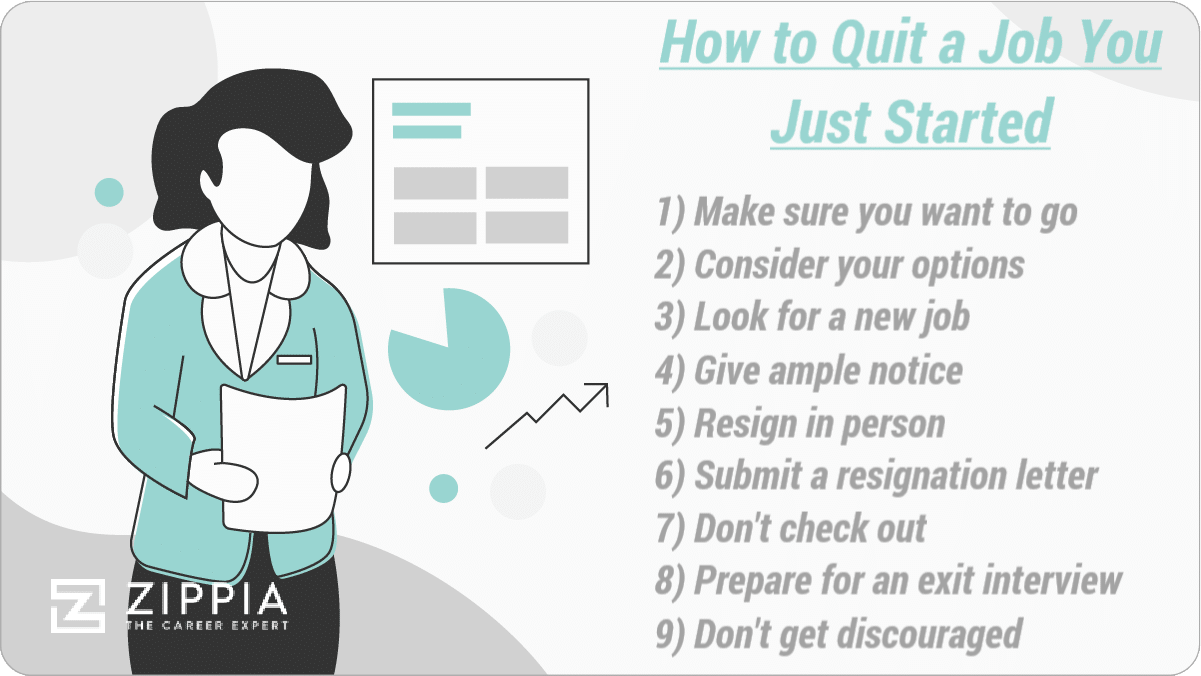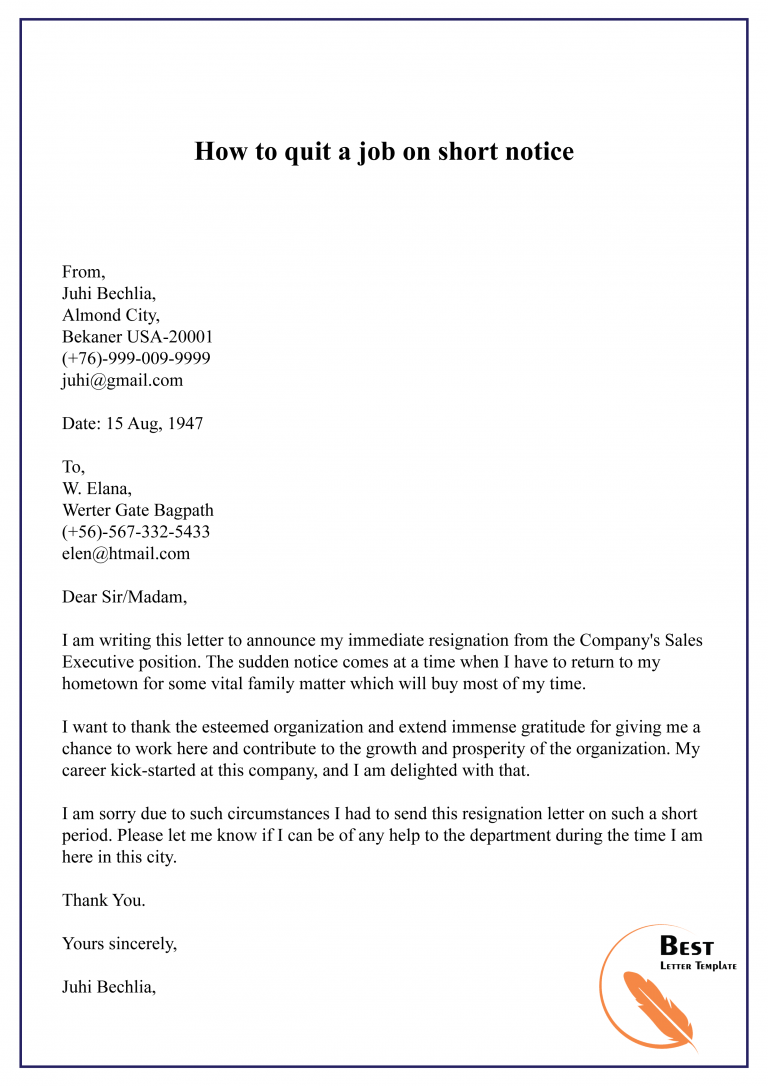What To Say To Manager When Quitting

Navigate the crucial final conversation: Knowing exactly what to say when resigning can protect your reputation and secure future opportunities.
This guide provides essential phrases and strategic advice for a professional and positive resignation, ensuring a smooth transition for both you and your employer.
Key Phrases for Resignation: A Step-by-Step Guide
"I am writing to inform you of my resignation from my position as [Your Position] effective [Your Last Day of Employment]." This is the foundational statement.
It's direct, clear, and leaves no room for ambiguity. State your role and your last day precisely.
Expressing Gratitude (Briefly)
"I appreciate the opportunities I’ve been given during my time at [Company Name]." Acknowledge the positive aspects, but keep it concise.
Focus on general experiences rather than delving into specifics. Avoid excessive praise or insincere sentiments.
Offering Assistance with Transition
"I am committed to ensuring a smooth transition during my departure." This demonstrates professionalism and responsibility.
Offer to help train your replacement or document key processes. Be realistic about your capacity and timeline.
The Importance of Professionalism
Avoid negativity. Refrain from criticizing your manager, colleagues, or the company.
Focus solely on your future endeavors and maintain a positive tone. Don't burn bridges, as 92% of employers check candidate's social media profile, according to a 2018 CareerBuilder survey.
What Not to Say
Do not disclose specifics about your new role or company, unless you are comfortable doing so. It is unnecessary and could lead to uncomfortable questions.
Avoid detailing negative experiences or grievances during your resignation. Keep those separate and address them through appropriate HR channels, if necessary.
Handling the Conversation: Preparation is Key
Prepare a written resignation letter. Bring a copy with you to the meeting to ensure you stay on track.
Practice your delivery. Rehearsing what you want to say can help you remain calm and composed. A 2019 study by Harvard Business Review notes that practicing difficult conversations reduces anxiety by 20%.
The Face-to-Face Meeting
Schedule a meeting with your manager. Don't deliver the news via email or text, unless previously agreed upon.
Choose a private and quiet setting for the conversation. Be respectful of their time and emotions.
Answering Questions Strategically
Be prepared for questions about your departure. Keep your answers brief and professional.
If asked about your reasons, you can say something like, "I've accepted a new opportunity that aligns with my long-term career goals."
Maintaining a Positive Relationship
Offer your contact information (optional). If you are comfortable, you can provide your personal email address or LinkedIn profile.
This can help maintain a professional relationship for future networking. A 2021 LinkedIn study shows that 70% of professionals got hired at a company where they had a connection.
Next Steps and Considerations
Confirm your last day and any outstanding obligations. Ensure you understand your benefits, final paycheck, and any required paperwork.
Follow up with a formal resignation letter via email. This provides a written record of your resignation and last day.







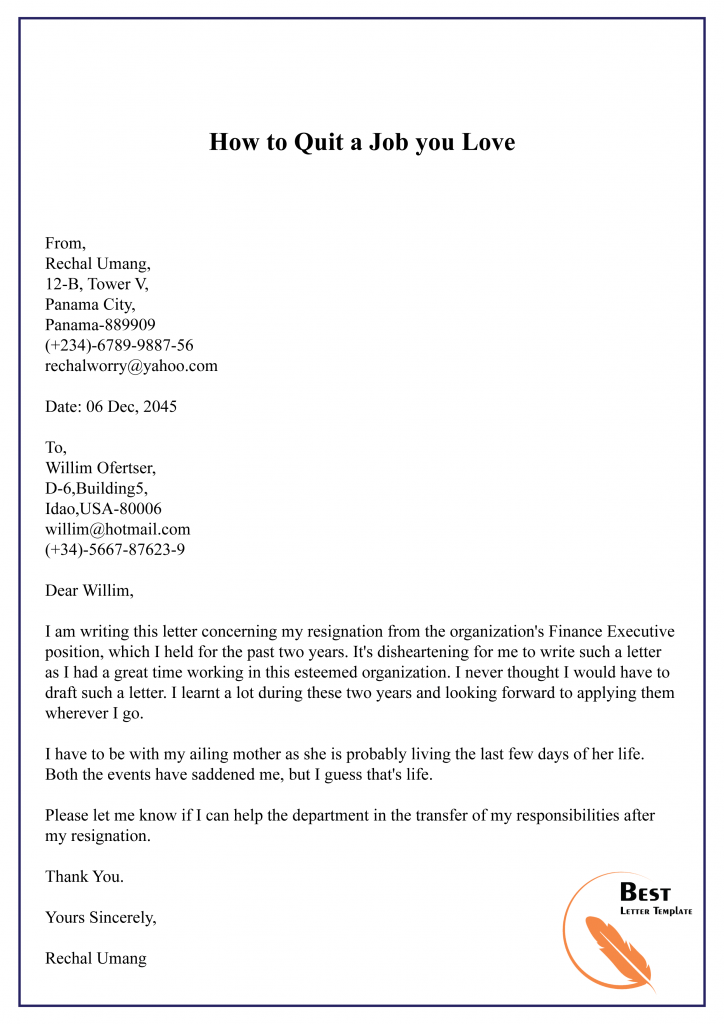

:max_bytes(150000):strip_icc()/how-to-tell-your-boss-you-re-quitting-your-job-2063035_FINAL-5b88037cc9e77c002cc6f46c.png)
:max_bytes(150000):strip_icc()/2063053_2022-f09cb56e07f643d79b31483a3e14f07b.jpg)

